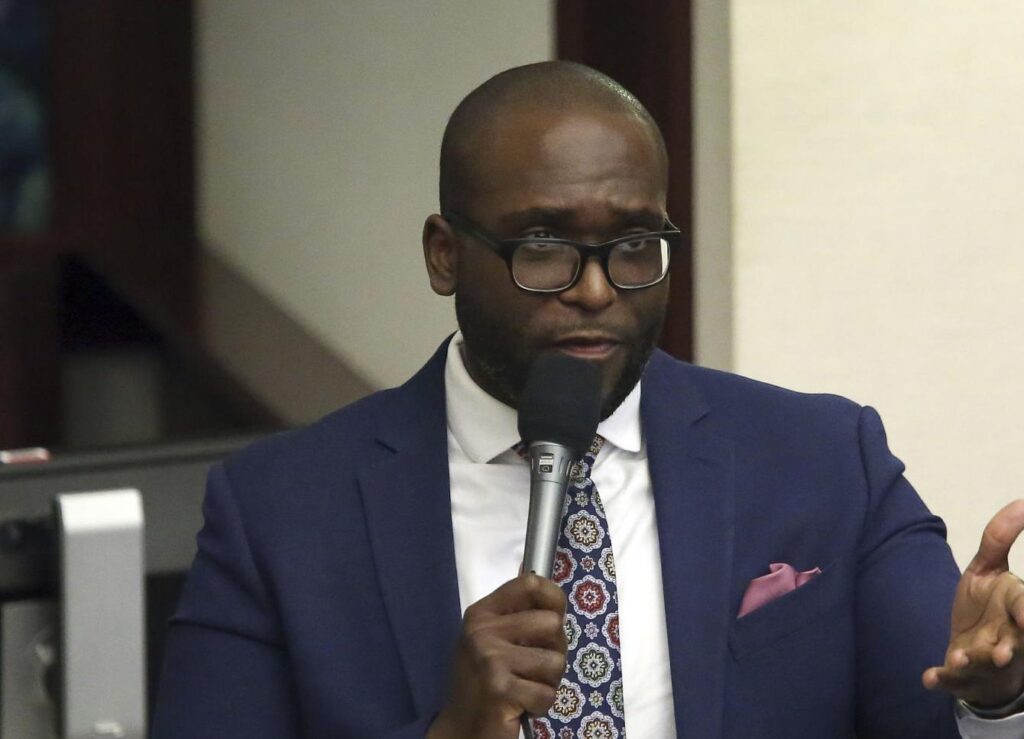The Center Square
By John Haughey
April 28, 2021

(The Center Square) – A bill dramatically scaling back contributions to citizen initiative campaigns is on Gov. Ron DeSantis’ desk and another measure imposing new restrictions in state vote-by-mail laws could soon be on its way.
The House Monday approved Senate Bill 1890 in a 75-40 party-line vote, securing its final chamber approval.
SB 1890 caps donations to political committees backing proposed constitutional amendments at $3,000 during the signature-gathering process, the same restriction placed on donations to statewide candidates.
The Senate also on Monday endorsed SB 90 in a partisan 23-17 vote with only Rep. Jeff Brandes, R-St. Petersburg, breaking party ranks.
Filed by Sen. Dennis Baxley, R-Lady Lake, SB 90 imposes a range of restrictions on Florida’s vote-by-mail (VBM) laws
The petition-restriction bill, SB 1890, was sponsored by Sen. Ray Rodrigues, R-Estero, and adopted by the Senate on April 15 in an equally-partisan 23-17 vote.
SB 1890’s House companion, House Bill 699, was filed by Rep. Bobby Payne, R-Palatka, who led proponents in Monday’s House floor debate, arguing wealthy donors contributing to campaigns to amend the Florida Constitution is a new and dangerous phenomenon.
“Let me remind you that this bill was trying to stop millionaires, which we’ve seen, 25 millionaires, billionaires contribute over $70 million to out-of-state elections in the last four years, 12 of which have been in Florida,” Payne said.
Florida’s constitution is the state’s “fundamental document” and many of the changes orchestrated through ballot petitions over the last decade could have been better handled by lawmakers making statutes, he said.
“It’s our duty to make sure that only the best ideas from people from our state, from Florida, are part of our guiding document,” Payne said.
Under SB 90, Floridians must produce more information – a driver’s license number, state-issued ID number, the last four digits of Social Security numbers – when registering to vote or requesting a VBM ballot.
The bill would require election supervisors to compare signatures on ballot envelopes to electronic signatures – such as ones signed on an electronic pad at a DMV office – no older than four years old.
If the supervisor doesn’t have an electronic signature newer than four years old on file, supervisors could use the most recent paper, or “wet,” signature on file. If there isn’t any “wet” signature on file, the ballot must be rejected.
A ban on all ballot drop boxes originally in the bill was dropped but SB 90 expands the “no solicitation” zone around polling places and drop boxes to 150 feet.
Within that area, under the proposed new law, people cannot solicit votes or hand out items to voters although election officials and volunteers can distribute items, including water, to people waiting on lines – unlike a similar law adopted in Georgia that prompted Major League Baseball to move the 2021 All Star Game from Atlanta to Denver and unleashed a torrent of backlash from corporations and voting rights advocates.
“It’s not Georgia,” said Sen. Shevrin Jones, D-West Park, “but it’s definitely Georgia-light.”
SB 90 is opposed by a wide range of state and national organizations, including 66 of Florida’s 67 county election supervisors, religious leaders, veterans’ groups such as Florida Veterans for Common Sense and a voting rights group led by NBA superstar LeBron James who Monday urged Floridians to contact their lawmakers and demand they reject the bill.
SB 90 could have a rocky time in the House. Four amendments were filed Monday after it was adopted by the Senate and before it was placed on the House calendar, six before its cursory first reading and four more by day’s end. By Tuesday afternoon, 39 amendments were on the floor.

